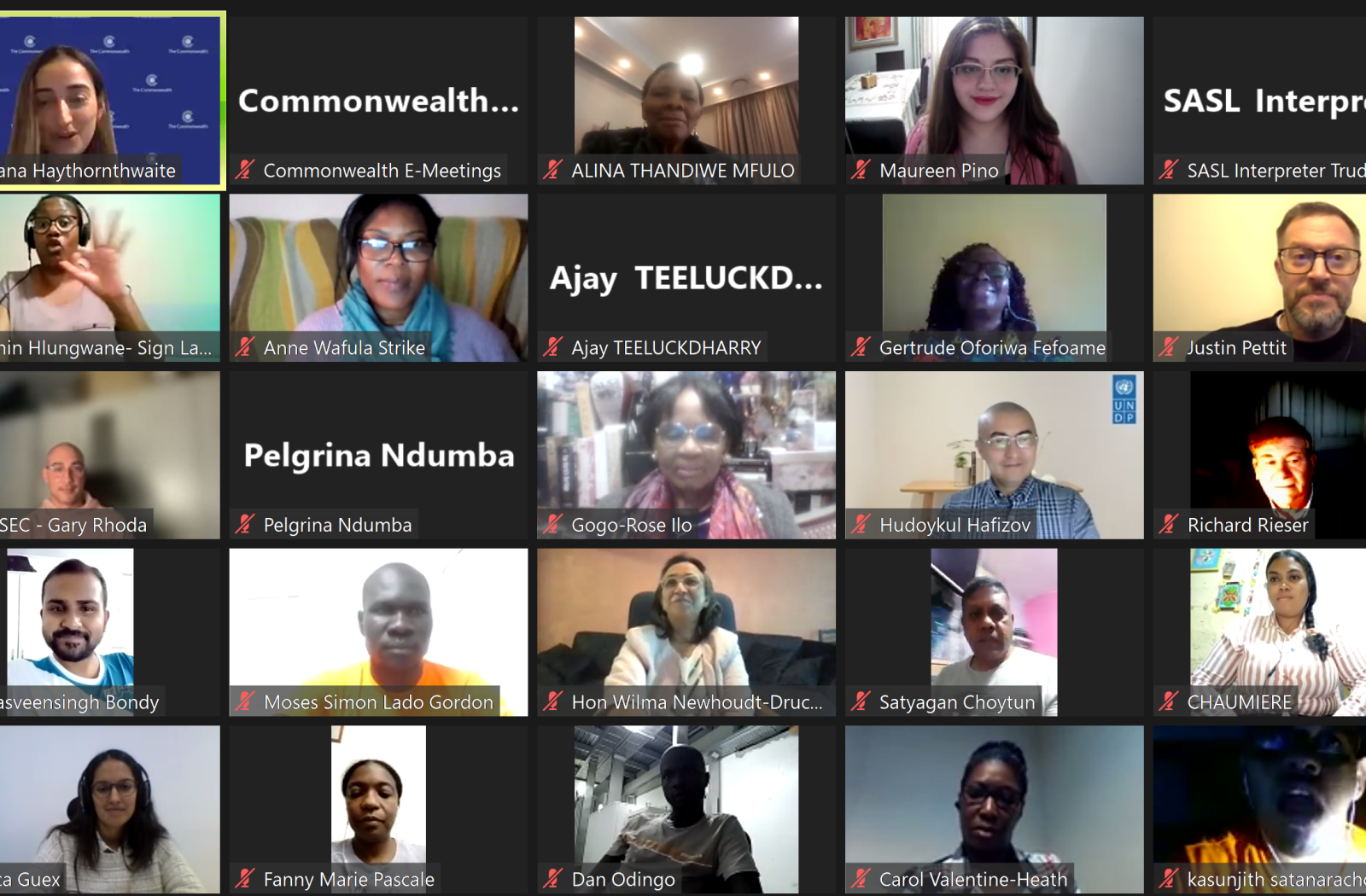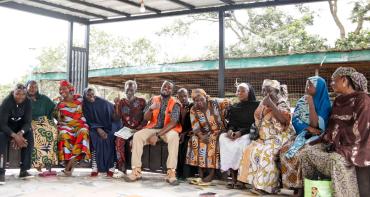A Commonwealth webinar has highlighted a series of effective solutions, which governments and law enforcement agencies can take to better understand and meet the needs of people with disabilities.

The webinar was hosted by the Commonwealth Secretariat’s Human Rights Unit on 2 December in partnership with the Special Envoy of the United Nations Secretary-General on Disability and Accessibility to mark the International Day of Persons with Disabilities. It aimed to highlight inclusive police practices that could be replicated in other countries to eliminate discrimination and barriers faced by people with disabilities when engaging with police.
Addressing barriers
One such solution was proposed by Commonwealth Champion for Equality in Sports Anne Wafula Strike, who told webinar attendees that inadequate training of police officers was creating more barriers for the world’s one billion people living with disabilities.
In response, British Paralympian Strike called for more comprehensive training of police officers, adding:
“There’s a communication breakdown. Police lack sufficient knowledge of different disabilities and how to handle them. When this happens, the barriers for the active participation of people with disabilities [in justice and police services] are widened.”
Also speaking at the webinar, Shavana Haythornthwaite, Head of the Secretariat’s Human Rights Unit, said:
“Disability is a cross-cutting issue that requires long-term and comprehensive approaches. We are pleased to be working with the Special Envoy of the United Nations Secretary-General on identifying meaningful measures that police forces in Africa can take to ensure that services are inclusive and accessible for everyone.”
Attendees, including government officials, legal experts and law enforcement officers, heard from diverse speakers that police are often a person’s first point of contact with the justice system and that discrimination and barriers further compound the disadvantages faced by people with disabilities when accessing legal and police services.
Urgent action
They identified key areas where urgent action is required to ensure police take the necessary steps to adequately meet the needs of people with disabilities. These include comprehensive police training, reasonable adjustments for people with communication difficulties and engagements with disabled people’s organisations on measures that directly affect them.
In this regard, stressing the importance of disability-inclusive police services, Dr Haythornthwaite said:
“While challenges persist, there are opportunities to make police services more inclusive, dismantle the barriers and improve the safety and security of persons with disabilities, whether they are victim, witness or suspect. There are good practices that can be shared and replicated, with appropriate modifications in accordance with local contexts.”
She urged the 56 Commonwealth countries to prioritise the “full enjoyment” of human rights by people with disabilities and ensure that they are both agents and beneficiaries of development.
Universal accessibility
Reflecting on the international observance, Professor María Soledad Cisternas Reyes, Special Envoy of the United Nations Secretary-General on Disability and Accessibility, said:
“Today, as a person with a disability, I congratulate the organisations of persons with disabilities for empowering the world’s persons with disabilities and for making such important rights enforceable, including the right to universal accessibility and the right to independent living by being included in the community.”
The theme of this year’s International Day of Persons with Disabilities is ‘innovation and transformative solutions’ for the full participation and inclusion of people with disabilities in all aspects of society and development.
Media contact
- Snober Abbasi Senior Communications Officer, Communications Division, Commonwealth Secretariat
- T: +442077476168 | E-mail



